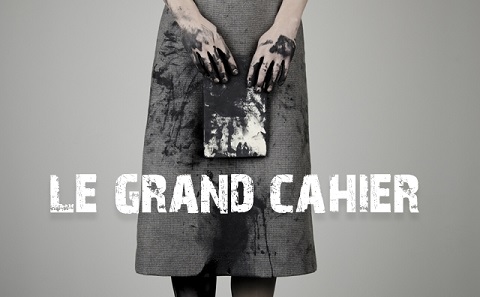The Notebook: Herald of Hungarian film’s bright future?

Nominees for the 86th Academy Awards won’t be announced until January 2014, but fans of Hungarian film can already get excited about the country’s prospective entry in the “Best Foreign Language Film” category. The Hungarian Oscar Committee has announced its selection of The Notebook for consideration in the category, arguably Hungary’s strongest contender for the award in three decades.
The only Hungarian production to have won the award was director István Szabó’s Mephisto in 1981, and the last Hungarian film to make the list of final nominees was Hanussen, also directed by Szabó and produced in Germany, in 1988.
Directed by János Szász, The Notebook, also known as “A nagy füzet” or “Le grand cahier”, recently made waves at the European cinema showcase event the Karlovy Vary International Film Festival in Prague in late June/early July. At the festival, “The Notebook” was awarded with the Crystal Globe as the best film.
The movie represented the sole Hungarian entry at the festival and was described in Karlovy Vary PR as “A fascinating and hard-hitting adaptation of the controversial debut novel by Hungarian writer Ágota Kristóf about 13-year-old twins forced to spend the last years of the Second World War with their cruel grandmother somewhere near the Hungarian border. The term bewitching was never so apt as in the case of this new film…” Written in French, the novel was published as “Le Grand Cahier” in 1986.
The Notebook could also represent more than a well notable artistic triumph for the Hungarian film industry, an industry which has seen a marked reduction in the number of productions over the past two decades. Getting some rare exposure for the national industry in the Hollywood-based trade publication Variety, Hungarian National Film Fund Director Ágnes Havas declared that “Hungarian cinema is back” in the afterglow of The Notebook’s victory in Prague.
Havas is the first-ever director of the National Film Fund, which was founded by former Hollywood producer Andrew G. Vajna, whose credits include Rambo II, Rambo III, Die Hard: With a Vengeance, and Evita. The current budget for 2013 is HUF 5.1 billion ($22.1 million); the producers of The Notebook reportedly received some $780,000 of its $4 million budget from the Fund in 2012 and the work represents the first feature film assisted by Vajna’s operation.
Variety reports that another 26 film projects have received partial or whole budget coverage through the Fund, and a total of six full-length features will see release before spring 2014.
As for the future, no word yet on whether the Filmszemle, Hungary’s February showcase of local films produced in the previous calendar year, will be resurrected, but for now Havas would like to “fine tune” the system of budgeting and production. More pragmatically speaking, she explained a personal goal to Variety: “I envy the Czech Republic, which has the same population as Hungary, 10 million, and if they release a Czech film they get … even one million viewers, and that’s what we’d like to achieve.”
Havas also pointed out an admirable philosophy driving the Fund: “We’d like to have big successes in the cinema, be it [with] an art house film or a so-called commercial film, which is an artificial difference because, you know, there’s only a good film or a bad film.”
She and Hungarian film devotees surely hope the Academy agrees with the Karlovy Vary jury that The Notebook is a good – no, a great – film come March.
SUPPORT THE BUDAPEST BUSINESS JOURNAL
Producing journalism that is worthy of the name is a costly business. For 27 years, the publishers, editors and reporters of the Budapest Business Journal have striven to bring you business news that works, information that you can trust, that is factual, accurate and presented without fear or favor.
Newspaper organizations across the globe have struggled to find a business model that allows them to continue to excel, without compromising their ability to perform. Most recently, some have experimented with the idea of involving their most important stakeholders, their readers.
We would like to offer that same opportunity to our readers. We would like to invite you to help us deliver the quality business journalism you require. Hit our Support the BBJ button and you can choose the how much and how often you send us your contributions.









